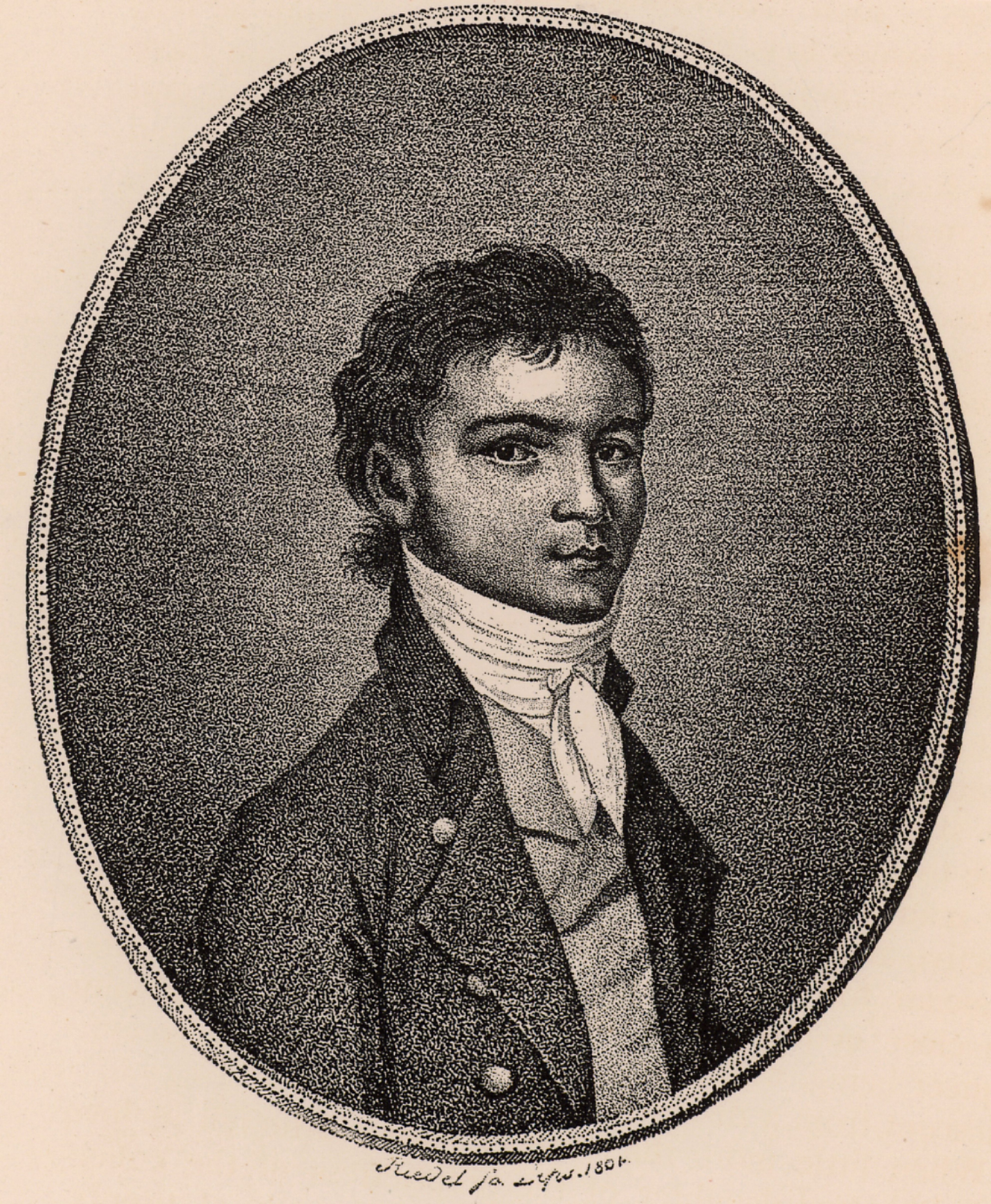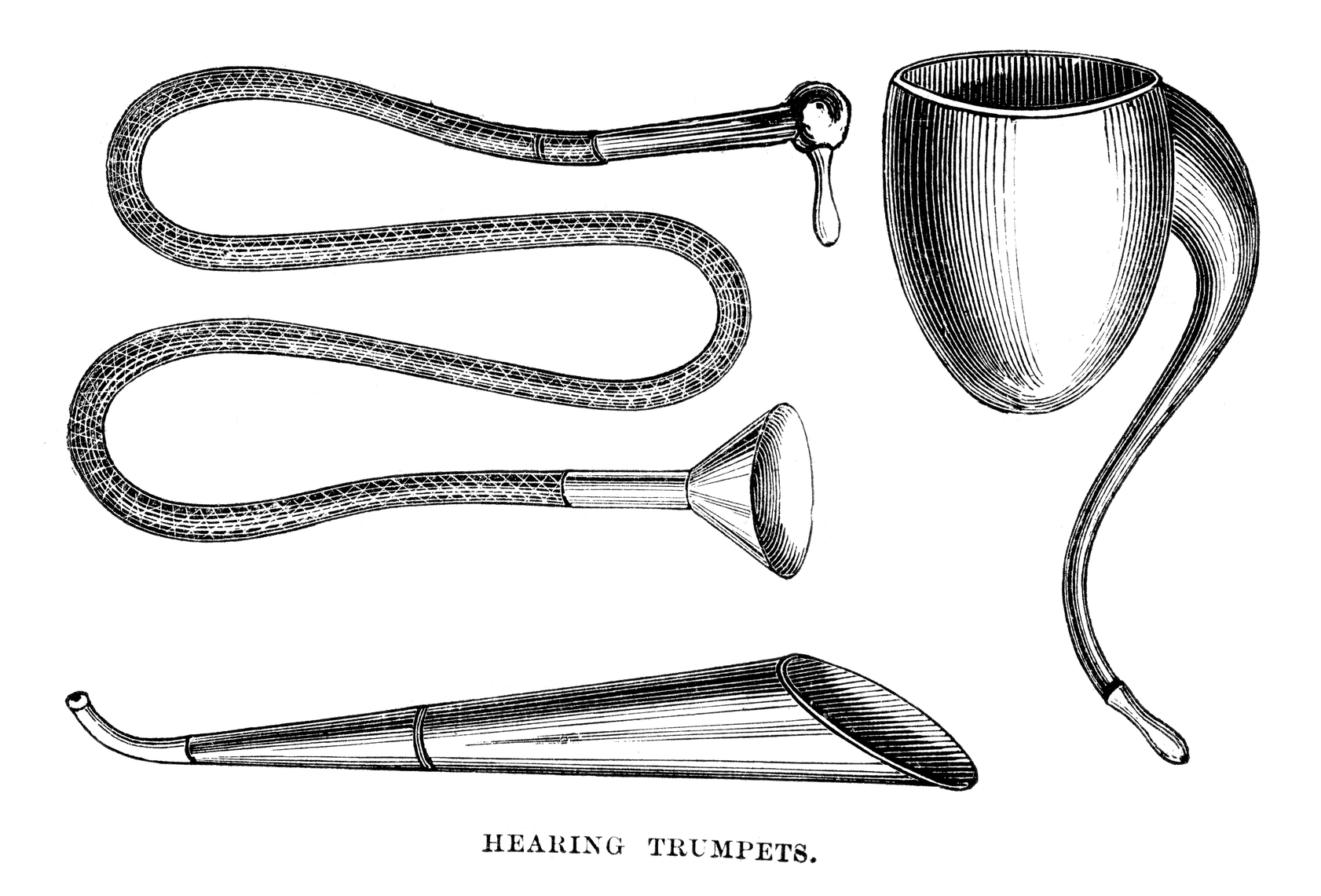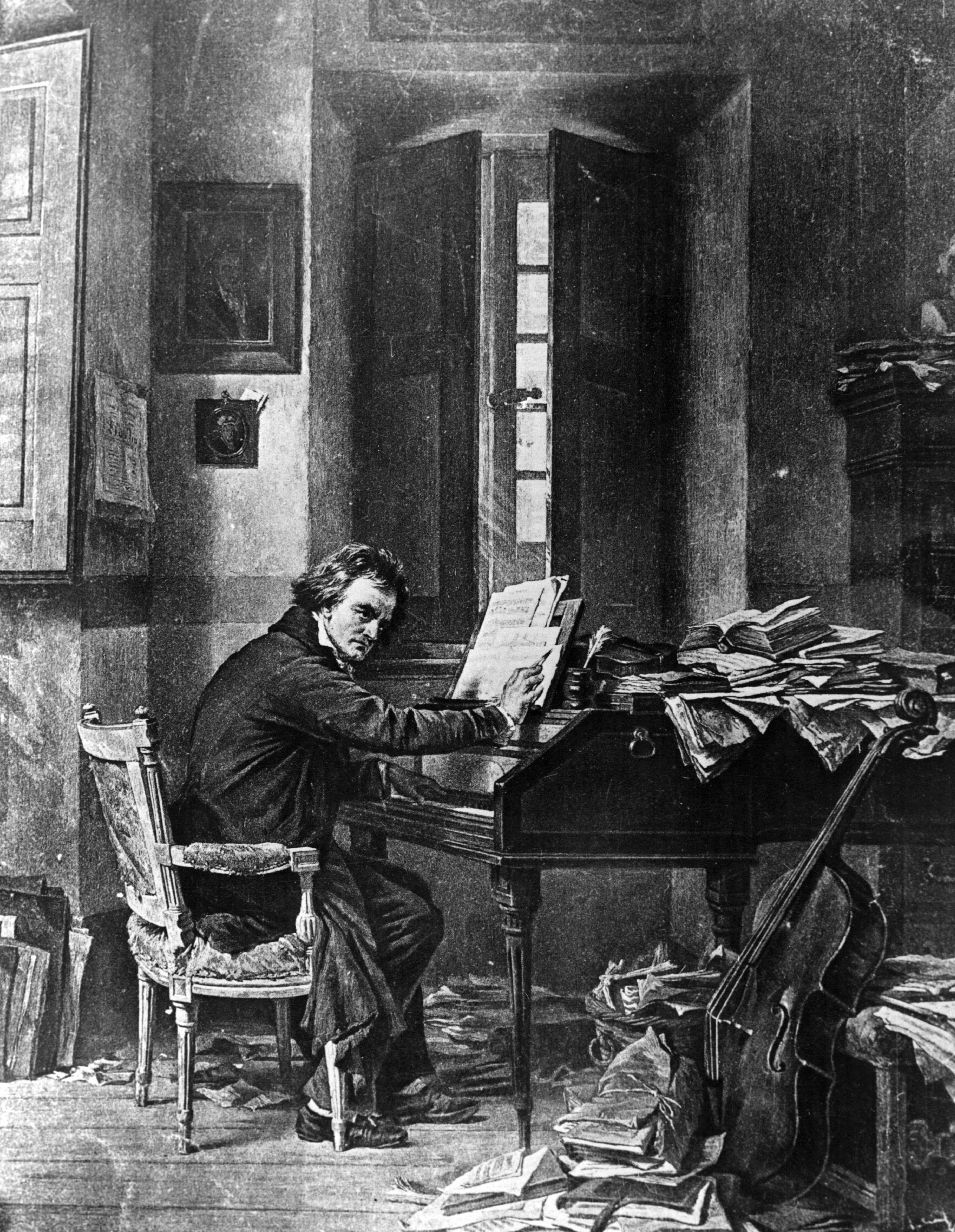What do they most regret losing by not being able to perform the play?
And so if Beethoven was completely deafened, how did he compose?
3 September 2020, 13:08 | Updated: 25 January 2021, 10:36
Ludwig was still pumping out the masterpieces - even when he was completely deaf. Here's how he did it.
"For the terminal three years my hearing has grown steadily weaker..." - and then wrote Beethoven, aged 30, in a letter to a friend.
The young Beethoven was known as the most important musician since Mozart. By his mid-20s, he had studied with Haydn and was celebrated equally a brilliant, virtuoso pianist.
Beethoven's life timeline: 1770 - 1802 >
By the fourth dimension he turned 30 he had composed a couple of pianoforte concertos, 6 string quartets, and his first symphony. Everything was looking pretty expert for the guy, with the prospect of a long, successful career alee.
Click here to listen to our podcast, Beethoven: The Human Revealed on Global Player, the official Archetype FM app >
Then, he started to notice a buzzing sound in his ears - and everything was nigh to change.

How former was Beethoven when he started going deaf?
Around the historic period of 26, Beethoven began to hear buzzing and ringing in his ears. In 1800, aged 30, he wrote from Vienna to a babyhood friend - by and then working as a doctor in Bonn - saying that he had been suffering for some time:
"For the last three years my hearing has grown steadily weaker. I can give you some thought of this peculiar deafness when I must tell you that in the theatre I have to become very close to the orchestra to understand the performers, and that from a altitude I practise not hear the high notes of the instruments and the singers' voices… Sometimes too I hardly hear people who speak softly. The sound I can hear it is true, but not the words. And all the same if anyone shouts I tin can't bear it."
Beethoven tried to keep news of the trouble secret from those closest to him. He feared his career would be ruined if anyone realised.
"For ii years I take avoided almost all social gatherings because information technology is impossible for me to say to people 'I am deafened'," he wrote. "If I belonged to any other profession information technology would be easier, but in my profession it is a frightful state."
Once Beethoven was out for a land constitutional with fellow composer Ferdinand Ries, and while walking they saw a shepherd playing a pipe. Beethoven would have seen from Ries's face that in that location was beautiful music playing, merely he couldn't hear it. Information technology's said that Beethoven was never the same over again after this incident, considering he had confronted his deafness for the first fourth dimension.
Beethoven could apparently still hear some voice communication and music until 1812. But past the age of 44, he was almost totally deaf and unable to hear voices or so many of the sounds of his dearest countryside. It must accept been devastating for him.
Why did Beethoven go deaf?
The exact cause of his hearing loss is unknown. Theories range from syphilis to atomic number 82 poisoning, typhus, or maybe fifty-fifty his habit of plunging his head into cold water to keep himself awake.
At 1 point he claimed he had suffered a fit of rage in 1798 when someone interrupted him at work. Having fallen over, he said, he got up to discover himself deaf. At other times he blamed information technology on gastrointestinal problems.
"The crusade of this must exist the status of my belly which every bit yous know has e'er been wretched and has been getting worse," he wrote, "since I am always troubled with diarrhoea, which causes extraordinary weakness."
An dissection carried out subsequently he died plant he had a distended inner ear, which developed lesions over time.
Hither'due south Beethoven's famous Symphony No.5, written in 1804. Its famous opening motif is often referred to as 'fate knocking at the door'; the savage hearing loss that he feared would afflict him for the rest of his life.
Quiz: How well do y'all Actually know Beethoven's fifth? >
What handling didBeethoven seek for his deafness?
Taking a lukewarm bath of Danube water seemed to help Beethoven's stomach ailments, just his deafness became worse. "I am feeling stronger and better, except that my ears sing and buzz constantly, day and night."
One bizarre remedy was strapping moisture bark to his upper arms until it stale out and produced blisters. This didn't cure the deafness—it only served to keep him abroad from his piano for 2 weeks.
Later 1822, he gave upwardly seeking treatment for his hearing. He tried a range of hearing aids, such as special hearing trumpets. Take a wait:

If he couldn't hear, how did he write music?
Beethoven had heard and played music for the starting time three decades of his life, so he knew how instruments and voices sounded and how they worked together. His deafness was a dull deterioration, rather than a sudden loss of hearing, and so he could always imagine in his heed what his compositions would sound similar.
Beethoven's life timeline: 1803-1812 >
Beethoven'due south housekeepers remembered that, as his hearing got worse, he would sit at the piano, put a pencil in his mouth, touching the other finish of information technology to the soundboard of the instrument, to feel the vibration of the note.

Did Beethoven's deafness alter his music?
Yes. In his early on works, when Beethoven could hear the full range of frequencies, he fabricated use of higher notes in his compositions. Every bit his hearing failed, he began to use the lower notes that he could hear more clearly. Works including the Moonlight Sonata, his only opera Fidelio and six symphonies were written during this menstruum. The high notes returned to his compositions towards the finish of his life which suggests he was hearing the works accept shape in his imagination.
Hither's Beethoven'due south Große Fuge, Op. 133, written by the deaf Beethoven in 1826, formed entirely of those sounds of his imagination.
Did Beethoven continue to perform?
He did. But he concluded up wrecking pianos past banging on them so difficult in order to hear the notes.
Afterwards watching Beethoven in a rehearsal in 1814 for the Archduke Trio, the composer Louis Spohr said: "In forte passages the poor deaf human being pounded on the keys until the strings jangled, and in piano he played so softly that whole groups of notes were omitted, so that the music was unintelligible unless one could look into the piano part. I was deeply saddened at so difficult a fate."
When information technology came to the premiere of his massive Ninth Symphony, Beethoven insisted on conducting. The orchestra hired some other usher, Michael Umlauf to stand alongside the composer. Umlauf told the performers to follow him and ignore Beethoven's directions.
The symphony received rapturous applause which Beethoven could not hear. Fable has it that the young contralto Carolina Unger approached the maestro and turned him around to face the audience, to see the ovation.
This is how the moment might have looked, with Gary Oldman playing Beethoven in the flick, Immortal Love:
Source: https://www.classicfm.com/composers/beethoven/guides/deaf-hearing-loss-composing/
0 Response to "What do they most regret losing by not being able to perform the play?"
Post a Comment